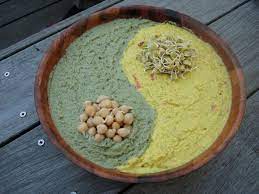One of the hallmarks of our sangha is understanding that a lifestyle of frugality, simplicity, and harmony with nature is an essential aspect of practice. Our community is an ongoing experiment in discovering the most compassionate and ethical lifestyle for spiritual practitioners in our current times. See Satya’s Writings for lots more about this.
Here are some of our efforts to live in joyful simplicity:
Reducing Energy Use
-We don’t turn on the fossil fueled house heat (with some exceptions). Sweaters!
-We use a hot box (hay box) to cook our grains and legumes so that we only have to use the stove to bring them to a boil (bringing food to a boil, then insulating pots with lots of blankets for a few hours, also works well and greatly reduces stovetop cooking time). Also, rarely use the oven (but sometimes the small toaster oven)
– We handwash and sun-dry. Even in Portland clothes dry – just pick a sunny day to wash.
– We ride bikes and use bicycle carts to haul things which helps keep us in shape and stay locally focused.
The Food Cycle
– We eat low on the food chain (only plant foods). This conserves energy, protects forests and other wildlands, reduces pollution, saves water, and of course helps end the enormous animal suffering caused by industrial factory farming (even organically raised animals are often poorly treated and denied a natural life). See www.earthsave.org for more info. We eat delicious and nutritious fare, as well, with some unusual innovations. Contact us for recipes.

– In the tradition of the original Chinese Ch’an communities, we help grow food locally. On our own small lot, we’re just harvesting about 25 sweet kabocha winter squash, and presently growing winter greens. We use a method of farming popularized by the Japanese farmer and spiritual teacher Masunobu Fukuoka. Inspired by the Asian spiritual ideal of “wu-wei” (non-doing), he rediscovered a way of growing food with the least imposition of human control and the most respect for nature’s own rhythm. (Minimal weeding, lots of biodiversity and wildlife habitat, no buying into the idea of “pests”). The name for this process which we like best was coined by the Indian farmer Partap Aggarwal- “rishi kheti” (farming of the sages) as he discovered these same principles in ancient Sanskrit texts. For more information on this method, check out Fukuoka’s wonderful book, The One Straw Revolution.
There’s also a great new movement of urban farming which we support- turning lawns and unused lots into community gardens and CSAs (community supported agriculture).
– We’re avid urban wildcrafters. We collect walnuts, hazelnuts, chestnuts, figs, plums, pears, apples, grapes, persimmons, kiwis, paw paws, Korean dogwood fruit, greens, herbs and firewood. It just takes a little observation to start noticing trees and what they give us.
– We gather food that would otherwise go to waste. By some estimates one third of all food marketed in the United States ends up uneaten in the garbage. We arrange to pick up donations at food markets of slightly damaged produce or close-to-expired packaged food. Most of this food is actually unblemished, but since there is no room for it on the shelves when the next load comes, it becomes waste. We also check dumpsters for any usable food and other items.
– We share our excess food with Food Not Bombs (www.foodnotbombs.net) who serve free vegetarian meals in public parks. See their website for a local chapter.
– Whatever we still need to buy, we buy in bulk from the local co-op with re-used bags or containers. (see the page On Giving)
– We complete the nutrient cycle by composting our own waste. In traditional agricultural societies the body’s waste products are used as the incredibly rich fertilizers that they are. In our own contemporary society, we have the bizarre practice of pooping and peeing into pure drinking water, flushing it away through a complicated sewer system, mixing it with polluting chemicals, and dumping it, mostly unused, into places where it often harms the ecosystem (like the ocean). Then we use synthetic, petroleum-based fertilizers for commercial agriculture which damage and deplete the soil and pollute the waterways.
The obvious solution is a simple transition to make, and doesn’t necessarily require expensive composting toilets. At Bukkokuji Temple in Japan, where Satya practiced, they simply scoop out the toilet tanks once or twice a month, dump them into freshly dug garden beds, and cover (as people have been doing for hundred of years). Here, we are a bit more methodical, and we add our “humanure” to specially designated compost bins, mix with woodchips, and allow the compost to heat and transform over several months. Odors are not a problem. See the Humanure Handbook by Joseph Jenkins, hardcopy or downloaded online, for complete information.
Do-it-Yourself Culture and Sharing
We aim to reduce consumption by first minimizing our needs and then making or learning to make what we do need, or sharing with our neighbors. In our area of Portland we are lucky to have a tool-lending library and a community bike maintenance collective. With a little organizing, these can be set up in many places. Most of the household items we need we get from freeboxes that people put out on the sidewalk. This is a great urban tradition that hopefully will spread far and wide.
Although computers are perhaps unnecessary in a meditation practice center, we have two rebuilt used laptops from the local computer recycling collective (www.freegeek.org) for use in teaching and practicing Indian music. (New computers exact a heavy toll on nature and society around the world. See FreeGeek’s website). Since internet is not used on the temple grounds, we utilize the library when necessary.
One of our most exciting D.I.Y. endeavours is our robe making project. Having hand-sewn our meal cloths for our “oryoki” bowls, we now intend to start sewing our own clothes from found scrap material. *Check out www.boundlessmindzen.org to see another sangha’s efforts at making their own robes.
From the earliest days of the Buddhist Sangha, and even before, Yogic practitioners have always served the wider community by being examples of the possibilities and freedom of a radically simplified lifestyle. In our era of intensified materialism and serious environmental deterioration, this role of the sangha is needed more than ever. We hope you can share some of our strategies with your communities and friends.
Please send us your questions and comments!
